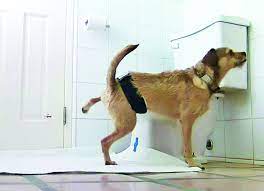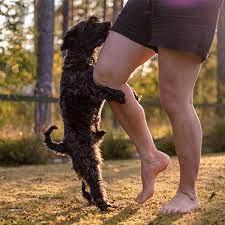For dog owners, it is essential to be aware of the signs that their furry friend may need to be neutered. Neutering is a surgical procedure that involves removing a male dog’s testicles to prevent him from reproducing. This procedure can also help with behavioral issues and improve the dog’s overall health.
Aggressive or territorial behavior is one common sign that a male dog must be neutered. Unneutered dogs are more likely to exhibit these behaviors as they have higher testosterone levels, which can lead to increased aggression and protectiveness over their territory. If your dog has been displaying signs of aggression towards people or other animals, it may be beneficial to consider getting them neutered.
Key Takeaways
- Aggressive or territorial behavior may indicate that a male dog must be neutered.
- Excessive mounting or humping can be a sign of anxiety, excitement, or boredom and can be reduced by neutering.
- Roaming or escaping may be caused by a strong desire to mate, which neutering can prevent.
- Neutering eliminates testosterone production, which can lead to prostate problems, testicular tumors, and other diseases, making neutered dogs calmer and less prone to aggression.
Aggressive or Territorial Behavior

If your pup’s aggressive or territorial behavior is getting out of control, it may be time to consider neutering. Studies have shown neutered dogs are less likely to display aggressive behavior than their intact counterparts.
In addition to neutering, training techniques, and behavioral modification can help address dog aggression. Positive reinforcement training can be efficient, where good behavior is rewarded with treats and praise struggling with your dog’s aggressive tendencies; consider consulting with a professional dog trainer or behaviorist who can provide personalized guidance on modifying your pet’s behavior.
Marking Territory by Urinating in the House

You may notice your furry friend peeing inside the house, which could indicate that it’s time to consider neutering. Male dogs have the instinct to mark their territory by urinating in certain areas, but when this becomes excessive and happens inside the house, it can become a big problem for pet owners.
Neutering can help prevent unwanted puppies from being born and reduce aggression and territorial behavior. Here are some signs that your dog may be marking his territory too much:
- Your dog frequently keeps in the same spot
- He lifts his leg to pee on furniture or other objects
- He urinates more often than usual
- The urine has a strong odor
If you notice these signs, you must talk to your veterinarian about neutering your dog. Not only will it help with the issues mentioned above, but it can also improve your dog’s overall health and behavior.
Roaming or Escaping

Oh, it’s just delightful when your furry friend decides to break free from the confines of your backyard and go on some adventure around the neighborhood. However, this could indicate that your dog needs to be neutered. Roaming or escaping is often caused by a strong desire to mate, leading to unwanted breeding and potential safety issues for your dog and other animals in the area.
To prevent breeding, neutering is highly recommended for male dogs not used for breeding purposes. Not only does it help control pet overpopulation, but it also reduces the risk of certain cancers and aggressive behavior. In addition to neutering, implementing safety measures such as secure fencing or supervision during outdoor activities can help prevent roaming or escaping behavior from becoming a frequent occurrence. Taking these precautions ensures your furry friend stays happy and healthy while keeping unwanted litters at bay.
Excessive Mounting or Humping

Excessive mounting or humping can cause discomfort and embarrassment for you and your furry companion, but there’s a solution. It’s important to note that mounting or humping behavior in dogs isn’t always sexual. It can be a sign of anxiety, excitement, or even boredom.
If you notice your dog exhibiting this behavior excessively, it may be time to consider neutering to reduce the behavior. Neutering can help decrease hormonal urges that drive your dog to mount or hump excessively. However, addressing the underlying behavioral issues through training methods and behavioral changes is essential to ensure long-term success in reducing this behavior.
Health Benefits of Neutering
There’s no denying the fact that neutering can bring significant health benefits to your furry friend. By having your dog neutered, you’re reducing its risk of certain cancers and infections. This is because neutering removes the testicles, eliminating testosterone production, which can lead to prostate problems, testicular tumors, and other diseases.
Moreover, neutering also has behavioral benefits for dogs. They become calmer and less prone to aggression as they no longer have a strong desire to mate or establish dominance over other dogs.
Overall, it’s essential to consider these health and behavioral benefits when deciding whether or not to have your dog neutered.
See also:
- Women Who Share Their Beds With Dogs Sleep Better: It’s Been Proven
- Why Do Dogs Get Tattoo When They’re Neutered Or Spayed
- Next Day Pets: The Ultimate Convenience for Pet Owners
- Grass Patch For Dogs
- Pet Save Sudbury: Saving Lives One Animal at a Time
- Understanding the Gestation Period for Dogs
- Hypoallergenic Hounds: A Solution for Allergies
Frequently Asked Questions
How much does it cost to neuter a dog?
Neutering benefits the dog and owner, including reduced risk of certain cancers and behavioral issues. Pre-surgery preparation may include fasting and blood work. Costs vary based on location but typically range from $100-$300.
Is it safe to neuter an older dog?
Neutering an older dog has pros and cons. While it can reduce the risk of specific health problems, there are also potential risks associated with anesthesia. A case study showed the successful neutering of a 10-year-old dog without complications.
Will neutering change my dog’s personality or behavior?
Neutering effects on personality or behavior are minimal but positive. Male dogs become less aggressive and more attentive to their owners. Training after neutering is essential to ensure a happy and well-behaved dog.
How long does it take for a dog to recover from neutering?
After neutering, dogs may experience discomfort and lethargy for a few days. Post-operative care includes activity restrictions and monitoring for potential complications such as bleeding or infection. If any concerns arise, owners should call their vet immediately.
Can a neutered dog still breed or produce offspring?
Neutering a dog provides many benefits, including preventing them from breeding and producing offspring. Not neutering dogs can lead to potential risks such as unwanted litters and behavioral issues. It’s essential to consider the long-term effects of this decision.
Conclusion
Being aware of the signs that your dog needs to be neutered is crucial for their well-being and your peace of mind. Remember, excessive marking, aggression towards other dogs, mounting behaviors, and an urge to roam are all potential indicators that it’s time to consider neutering your furry companion.
At Bone Voyage Dog Rescue, we prioritize the health and happiness of dogs, and we encourage you to take action if you notice these signs in your beloved pet. By adopting a dog from Bone Voyage, not only will you provide a loving home, but you’ll also be making a positive impact on the lives of these precious animals.
Join us today and embark on a journey filled with wagging tails, unconditional love, and endless joy. Visit our website to learn more and start the adoption process.
